The Way Back to God
Does this world get you down? If it does, you’re not alone. But take heart. God has a plan that can satisfy your soul.
Few believers in Jesus Christ will deny that we have been swept up in a period of chaos and confusion that threatens the survival of our nation. Sadly, history gives evidence of the decline and fall of great world powers that have made the same blunders.
How do we stem this tide of destruction? The answer is found in one source alone: the reliable, indestructible Word of God. What Scripture brings to light is twofold: (1) the universal attributes of sin and (2) the redemption only God could achieve and offer freely to those who repent.
Sin Invades Creation
God’s instructions to Adam were specific: Enjoy eating from all the trees in the Garden of Eden with one exception, the tree of the knowledge of good and evil (Gen. 2:16–17).
The tree possessed no inherent defect but, rather, symbolized obedience to the sovereign Creator. When tested, the man disobeyed; and the result was catastrophic. Sin invaded the whole of humanity. That we are born in sin is not an empty cliché. It is a universal reality.
That fact assails us in the account of Adam and Eve’s firstborn, Cain, who murdered his brother, Abel. Though we may plead innocence regarding the degree of sin we bear, we must acknowledge the truth as the apostle Paul summarized it: “For all have sinned and fall short of the glory of God” (Rom. 3:23).
Scoffers may ridicule the Genesis account, but the evidence is inescapable. Sin dogs this planet, generating evil, oppression, suffering, and death.
Sin Topples Nations
It doesn’t take long to find confirmation of sin’s damage. As early as chapter 11 in Genesis, the men of Shinar (Babylon) already were rebelling against God: “And they said, ‘Come, let us build ourselves a city, and a tower whose top is in the heavens; let us make a name for ourselves, lest we be scattered abroad over the face of the whole earth’” (v. 4)
The phrase let us make a name for ourselves stains the pages of history, embodying mankind’s desire to replace God. That desire runs like an evil stream, bringing down empires and nations. Yet, godless Babylon will meet its demise, as is vividly depicted in the book of Revelation: “Babylon the great is fallen, is fallen” (18:2).
Even God’s chosen nation, Israel, succumbed to temptation and chose rebellion and sin over obedience to the Lord. The prophet Samuel had warned the Israelites of the dire consequences of choosing a man to rule over them as the king, as opposed to letting God be their King:
Nevertheless the people refused to obey the voice of Samuel; and they said, “No, but we will have a king over us, that we also may be like all the nations, and that our king may judge us and go out before us and fight our battles.” And Samuel heard all the words of the people, and he repeated them in the hearing of the LORD. So the LORD said to Samuel, “Heed their voice, and make them a king” (1 Sam. 8:19–22).
So, God gave them what they asked for—to be like the heathens surrounding them. The Israelites wanted to emulate a culture steeped in rebellion against the Lord, His Word, and His people. When sin takes hold, it turns nations away from their Creator.
God Makes a Promise
But God made a promise; and it was to be delivered in a completely unexpected fashion: “For unto us a Child is born, unto us a Son is given” (Isa. 9:6).
Who would fulfill that promise? God vowed to send His own Son as a final sacrifice for our sin (Jn. 3:16).
And so the story of Jesus begins. It is simple yet overwhelming. In fact, we stand in wonder before it. That Jesus would come to die for me—and potentially every human being on the face of the earth—is beyond comprehension. And how God chose to manifest His Son’s credentials is, to say the least, unique.
The sin-bearer stepped down from heaven, clothed Himself in flesh, astonished the religious establishment by choosing lowly fishermen as His companions, brought healing to the blind, ate in the company of despised tax collectors and people branded as notorious sinners, rescued an accused adulteress from being stoned to death by religious zealots, and sat with multitudes who flocked to hear Him teach as He offered the Bread of Life.
All these events prefaced His move toward a hill at a place called Calvary, where He would lay down His life for you and me—a triumph over sin. Jesus became our final sacrifice. He took the punishment we deserve, satisfied God’s righteous wrath, and arose from the dead. All that is left for us to do is repent and believe.
Our Friend Jesus
Over my years of ministry, I often preached in rescue missions and jails. Whenever we gave people the opportunity to sing a favorite song, they inevitably requested “What a Friend We Have in Jesus,” written by Joseph M. Scriven in the 1800s. Why this hymn? Because it embodies a heartfelt cry for deliverance, bathed in simplicity and hope:
What a friend we have in Jesus, / All our sins and griefs to bear!
What a privilege to carry / Everything to God in prayer!
Oh, what peace we often forfeit, / Oh, what needless pain we bear
All because we do not carry / Everything to God in prayer.
These people had lost everything in life that mattered. They lived in jail cells or on the street. And they found seats in rescue missions that offered them a meal and a bed. But when they heard the message about Jesus, they received much more than food and shelter. They received eternal truth about the soul-satisfying Bread of Life.
The Gospels (Matthew, Mark, Luke, John) are not complicated. They teach us of God the Father’s love for us in words and depictions we can all understand. Consider the story of the prodigal son in Luke’s Gospel.
The young man demanded his inheritance, skipped off to a faraway country, and “squandered his estate with loose living” (15:13, NASB). Eventually, he hit bottom.
Thinking his father’s servants were better off than he was, the young man decided, “I will arise and go to my father” (v. 18). Returning, he expected well-deserved chastisement and servitude. “But when he was still a great way off, his father saw him and had compassion, and ran and fell on his neck and kissed him” (v. 20). His father had been watching and waiting for his son to return; and when his boy came home, he welcomed him with unrestrained love.
The Cross
Inexplicably, it was the religious leaders who consorted to force the Son of God to the cross. The appointed guardians of the faith became murderers.
However, more was transacted on that grim occasion than what they understood. Jesus expressed what the cross was all about: “No one takes [My life] from Me, but I lay it down of Myself. I have power to lay it down, and I have power to take it again” (Jn. 10:18).
Jesus’ enemies thought they were putting an end to Him. Instead, they were igniting a flame—one that would burn for millennia and will stay lit throughout eternity. To His disciples, Jesus had provided an assuring word:
Let not your heart be troubled; you believe in God, believe also in Me. In My Father’s house are many mansions; if it were not so, I would have told you. I go to prepare a place for you. And if I go and prepare a place for you, I will come again and receive you to Myself; that where I am, there you may be also (14:1–3).
Then He added, “I am the way, the truth, and the life. No one comes to the Father except through Me” (v. 6).
Thankfully, Jesus is coming again to call to His side those of us who belong to Him; and we will be by His side forever. We have this assurance because He hung on a cross; shed His blood as the final sacrifice for sin; and became the “propitiation [satisfaction] for the sins of the people” (Heb. 2:17), declaring, “It is finished!” (Jn. 19:30).
His Suffering, Our Deliverance
The evangelist was Dr. Hyman Appelman, a Jewish lawyer who had become a believer in Jesus. The meeting was in a large auditorium in downtown Detroit, Michigan, where people from all over the area gathered to hear him speak. My wife, Maxine, and I were there with my father, who was concerned for our spiritual welfare.
The subject was “The Three Crosses.” Dr. Appelman explained the events leading to the Messiah’s trial and to Roman Prefect Pontius Pilate declaring Him guiltless. Yet, Pilate acquiesced to the demands of corrupt religious leaders who demanded a guilty verdict leading to Jesus’ crucifixion.
On the cross, Jesus hung between two notorious criminals. It was at this juncture that Dr. Appelman made his appeal. He began with these verses:
Then one of the criminals who were hanged blasphemed Him, saying, “If You are the Christ, save Yourself and us.” But the other, answering, rebuked him, saying, “Do you not even fear God, seeing you are under the same condemnation? And we indeed justly, for we receive the due reward of our deeds; but this Man has done nothing wrong.” Then he said to Jesus, “Lord, remember me when You come into Your kingdom” (Lk. 23:39–42).
“Every person here tonight stands on one side of the cross or the other,” Dr. Appelman said. “You must ask yourself the question, ‘On which side of the cross am I?’”
I asked myself if I was on the side of the criminal who blasphemed or the one who believed. I didn’t leave the meeting that night as a Christian, but I understood my need and God’s provision.
For approximately six months, the image of that cross bore into my mind until, one spring evening, my resistance dissolved into repentance. I fell on my knees before a loving Christ who endured the torture of crucifixion for me so I could be set free.
I believed! Immediately, my life changed course; and I have never turned back.
My experience is in no way unique. In fact, it is representative of all who have come before and after me. Nothing compares to the experience of receiving new life in Christ. We are all born in sin. But through Jesus, we have a way back to God.
Photo: Adobe Stock
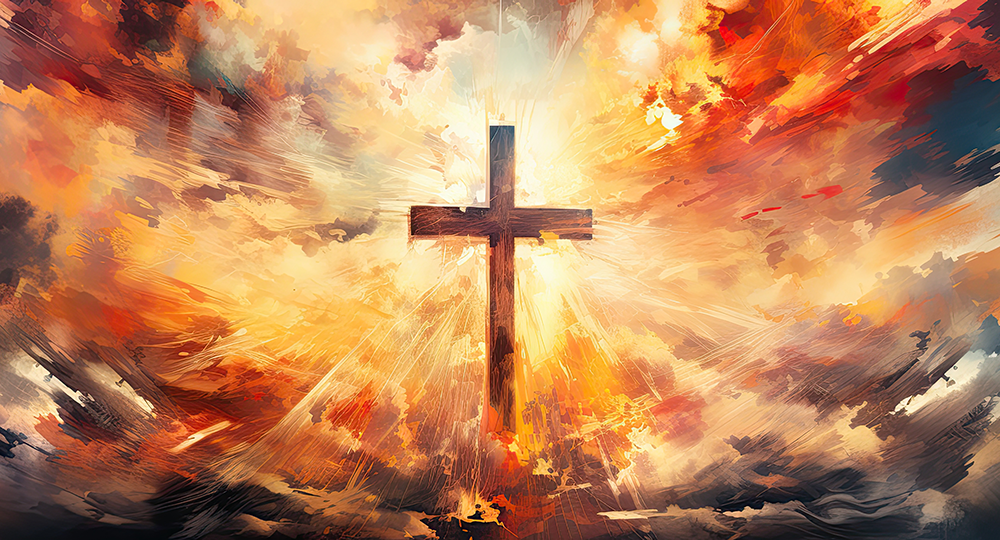


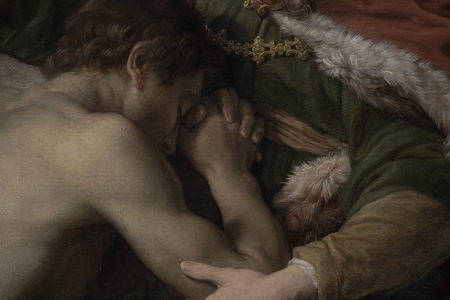
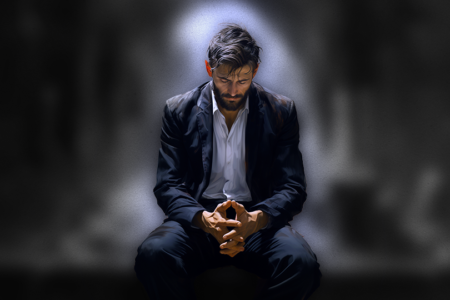
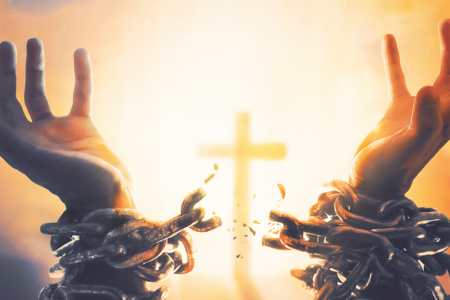
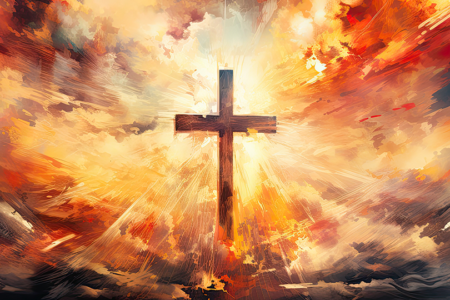


Thank you!!!!